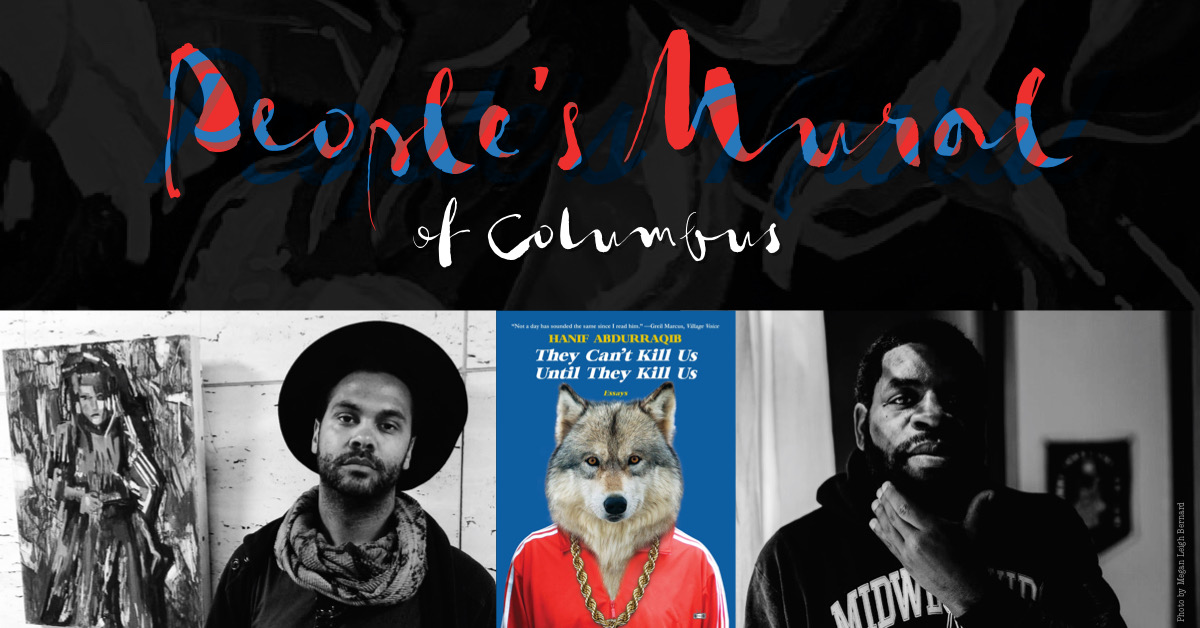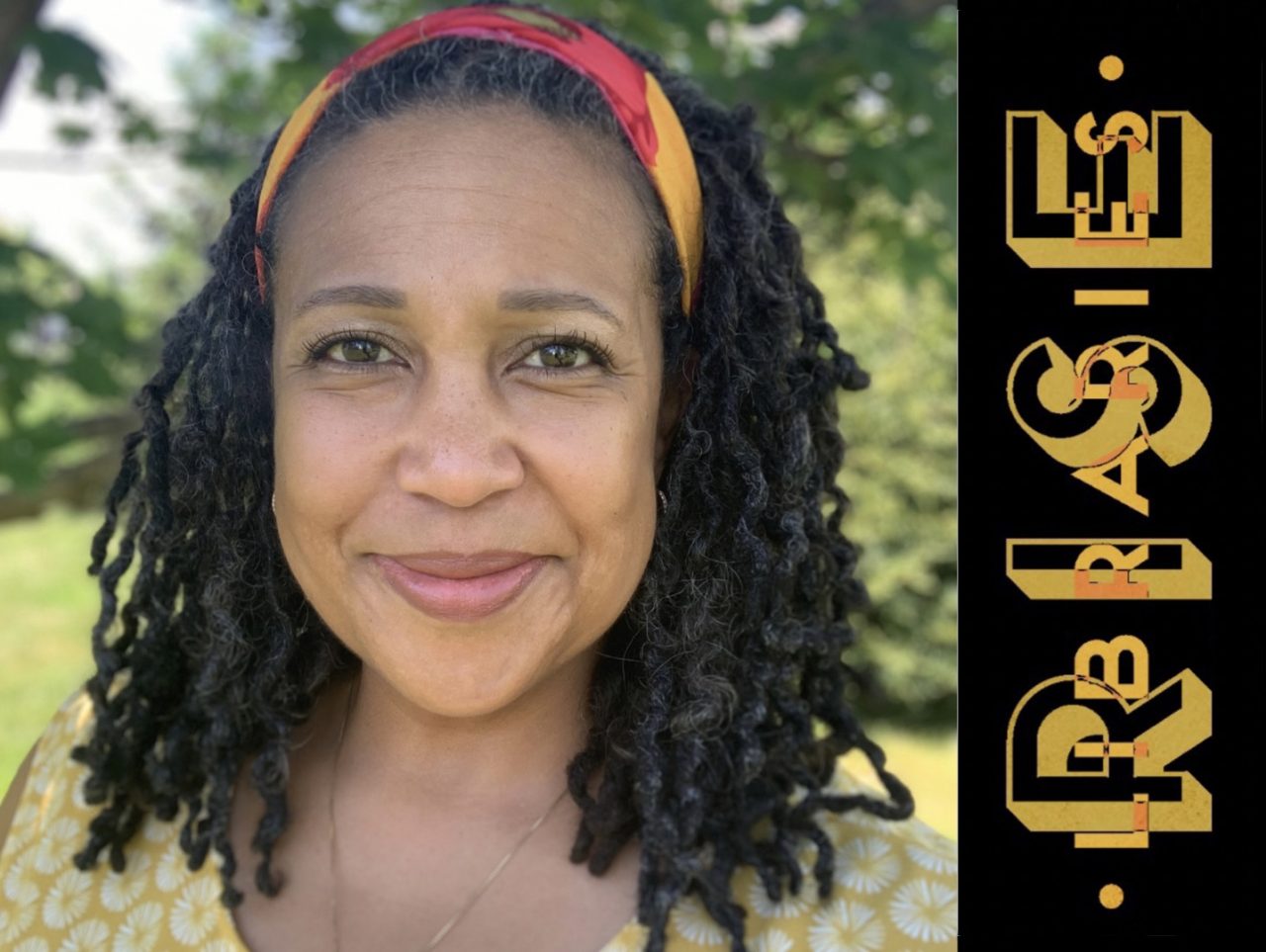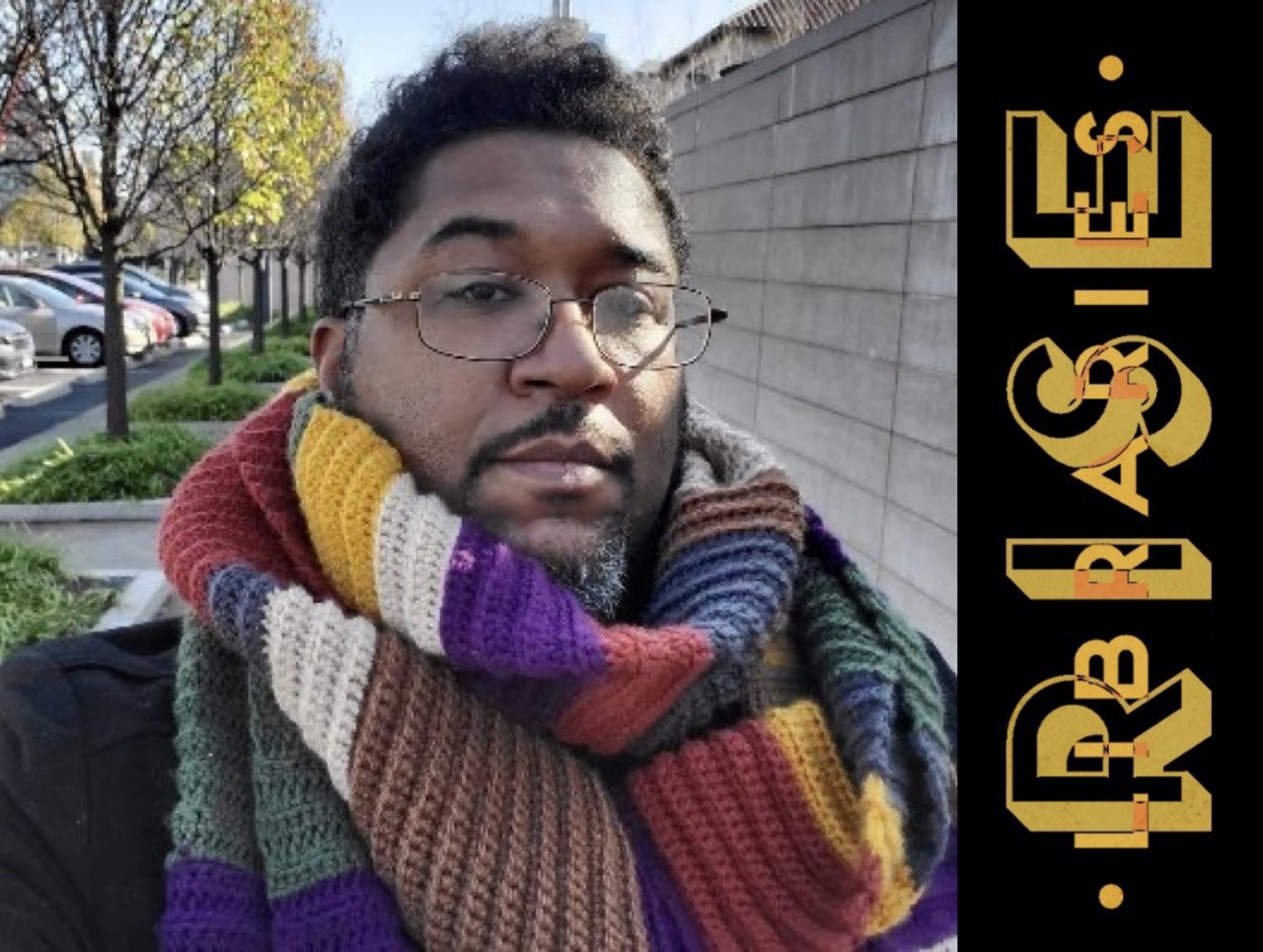Contacts:
Bryan Loar, Co-Founder
Cbus Libraries
bryan [at] cbuslibraries.com
COLUMBUS, Ohio, June 17, 2021—Cbus Libraries, a grassroots initiative to champion libraries and the love of reading, is excited to announce plans to create The People’s Mural of Columbus. The mural will celebrate the writing of lauded Columbus poet and essayist, Hanif Abdurraqib. Columbus Artist Bryan Moss will lead a team in August to create an engaging piece that speaks to all.
In August, Cbus Libraries will host a celebration at Simakovsky Law to honor Hanif, the artists involved, and Columbus’ Black community. Follow us for the latest updates. The celebration will include:
- Mural dedication with MC Jevon Collins of the King Arts Complex
- Readings by Hanif Abdurraqib, Barbara Fant, Scott Woods, Dr. Carlotta Penn & more
- Music by DJ Krate Digga
- Gourmet fruit & veggie pops by Too Good Eats
- Family art activities by Maroon Arts Group
- Free book fair by Cbus Libraries
- Filming by Donte Woods-Spikes of Empathize with Me
Learn more about The People’s Mural of Columbus at cbuslibraries.com/peoples-mural.
About Hanif Abdurraqib
Hanif Abdurraqib is a New York Times bestselling poet, essayist, and cultural critic from Columbus, Ohio. His writing has been published in Pitchfork, The New Yorker, The New York Times, and several other notable publications. Hanif’s first collection of essays, They Can’t Kill Us Until They Kill Us, was released in 2017 by Two Dollar Radio and was named a book of the year by Buzzfeed, Esquire, NPR, Oprah Magazine, Paste, The Los Angeles Review, and The Chicago Tribune, among others. Hanif’s additional honors include the 2020 Ohioana Award for Poetry, 2020 Lenore Marshall Prize, being longlisted for the National Book Award and selected as a finalist for the Kirkus Prize. In 2021, he published A Little Devil In America (Random House). Hanif graduated from Beechcroft High School. Learn more at abdurraqib.com.
About Bryan Moss
Bryan Moss is an artist, visual storyteller, and teacher. He describes himself as a conduit for the community, and he recently completed a large-scale mural celebrating 100 years of White Castle history. His public murals and collaborations can be found sprinkled throughout downtown Columbus. The Columbus Museum of Art also recently tapped Bryan to help archive the home of his former mentor, artist Aminah Robinson. The fruits of his labor brought to life the exhibition, “RAGGIN’ ON: The Art of Aminah Robinson’s House and Journals.” Learn more at columbusmakesart.com/stories/bryan-moss.
About Cbus Libraries
Cbus Libraries’ mission is to champion Central Ohio libraries, library enthusiasts and the love of reading. Co-founded by two librarians, Andrea Dixon and Bryan Loar, Cbus Libraries reaches more than 9,000 online followers worldwide, features Central Ohio libraries, has raised nearly $1,500 for future librarians of color, and has gifted over 5,000 books to the community. Cbus Libraries is a 501(c)(3) nonprofit. Learn more at cbuslibraries.com.
The People’s Mural of Columbus is generously funded through individual donors, the Greater Columbus Arts Council, Two Dollar Radio, Simakovsky Law, and Cbus Libraries. If you would like to donate or sponsor, please go to cbuslibraries.com/support
We asked OhioNET Executive Director & CEO Nancy S. Kirkpatrick four important questions about racial injustice, inequity and libraries.
What are your thoughts on racial inequality and injustice today?
It took me some time to even respond to your questions because though they are short, they are not simple, and I wanted to make sure I responded in a thoughtful manner. And in the interest of full transparency, my first response to the questions was simply fatigue. I am tired. Tired of thinking about, talking about, and being asked about racial inequality and injustice when these issues should have been settled decades ago. Really, they should never have been issues at all, but given the history of our country and our world, here we are.
I believe most of America doesn’t want to think about or tackle racial inequality and injustice in meaningful ways because it represents a threat to their identity. It is difficult to acknowledge that systems you’ve never even thought about until now have been giving you (straight cisgender White people) advantages for centuries. It is even harder to change those systems. It may seem “unfair” that the identity of a country founded on the backs of unpaid labor by people who weren’t part of creating that system is intertwined with the identity of those same people today. But no matter your personal identity, be sure that this country’s origin story and identity are impacting individual lives and entire communities of people in ways that were probably never anticipated. And until we, as individuals and as a country, are ready to accept that reality, talk less and do more, that isn’t likely to change.
Cherríe Moraga says it more eloquently, “Social change does not occur through tokenism or exceptions to the rule of discrimination, but through the systemic abolishment of the rule itself.”
Moraga, Cherríe & Anzaldúa, Gloria. (2015). This Bridge Called My Back, Writings by Radical Women of Color (Fourth Edition); pg. xviii. State University of New York Press, Albany.
Have you seen libraries respond?
I have seen libraries respond in several ways. Libraries issued statements after the murder of George Floyd and the unrest that followed. Libraries have issued statements in response to the recent hate crimes against Asian Americans and Pacific Islanders across the country. Libraries have hosted book clubs and read texts in efforts to get the conversation started in their community. And there seems to be an uptick in DEI work happening in the library world, at least for the moment.
Could libraries do more? If so, how?
Absolutely yes, libraries could and should do more. Making statements and hosting book clubs is a start. Bringing DEI experts into your library probably can’t hurt either. However, I would love to see libraries dig deeper. We should be examining the foundations of our current systems and asking ourselves if those systems enable us to provide our communities and our library staff with the support that they deserve. If your DEI committee is chaired by the one person of color on your staff, do better. If a minoritized person walks into your library, what do they see and experience? What do the signs, the artwork, or the available services, convey to them? Are those spaces truly welcoming to all? Including your library staff? What about your policies? What are you doing to build cultural competency across your organization? What are you doing to work equitable outcomes into your practices?
As central gathering spaces for communities and campuses, libraries are in a unique position to model the changes we’d like to see more broadly in societal spaces and have those models be seen. We should be collectively doing something with our agency.
Any closing thoughts?
I am honored to be the mother to two amazing young adults. I would love to leave them a world where the words of Maya Angelou and Amanda Gorman and Melissa Lozada Olivia and Ocean Vuong and countless others are not only aspirational and inspirational, but reality. A reality where extremism is associated with concepts of justice and equity, not hate and religious intolerance. Again, I will leave it to one more eloquent than I to summarize – Dr. Martin Luther King, Jr.: “’We hold these truths to be self-evident, that all men are created equal.’ So the question is not whether we will be extremist, but what kind of extremist we will be. Will we be extremists for hate, or will we be extremists for love? Will we be extremists for the preservation of injustice, or will we be extremists for the cause of justice?”
King, Martin Luther, Jr. (1963). Letter From a Birmingham Jail (Southern Christian Leadership Conference); pg. 9.
Libraries Rise: Black Perspective on Libraries
Cbus Libraries asked six leaders inside and out of libraries their thoughts on racial injustice and inequality. All responses are the leaders’ personal reflections and not necessarily representative of the organizations they are part of. The six-part feature will be serialized over the months of February and March, 2021. Check back weekly on Mondays for the latest feature and follow our tag, #LibrariesRise.
About Cbus Libraries
Cbus Libraries’ mission is to champion Central Ohio libraries, library enthusiasts and the love of reading. Co-founded by two librarians, Andrea Dixon and Bryan Loar, Cbus Libraries reaches more than 9,000 online followers worldwide, features Central Ohio libraries, has raised more than $1,100 in scholarship funds for librarians of color and has gifted over 5,000 books to the community. Cbus Libraries is a 501(c)(3) nonprofit.
We asked Writer and Streetlight Guild Founder Scott Woods four important questions about racial injustice, inequity and libraries.
What are your thoughts on racial inequality and injustice today?
The only thing different about racial inequality and injustice today is that more people are willing to be made aware of it. Once you account for changes in political and social context, the level of inequality hasn’t drastically improved since Reconstruction. It is, in fact, worse. Racism has always been systemic, and the system has evolved over the last 200 years to not only accommodate the loss of slavery as a legal process, but to compound the dividends slavery used to provide.
Have you seen libraries respond?
Libraries have traditionally tried to be politically and socially neutral, but the reality is that no cultural institution is neutral. The collections of libraries reflect the priorities and sensibilities of who runs them. The staffing of libraries has long been determined by class-oriented gatekeeping, so they’re not diverse on the back end either. Libraries are not democratic institutions and, conversely, cannot be neutral. Libraries have only recently been willing to even admit these realities. And while many libraries are now making efforts to address what they perceive as inequality, they are only in the beginning stages of that work, and not across the board. In short, many libraries may mean well, but there is a lot to learn before taking concrete steps to address issues like injustice and inequality, and libraries are very late to the game.
Could libraries do more? If so, how?
Libraries are situated better than almost any industry outside of academia to do the early work: get educated. Many libraries already have the resources within them to begin this process. They have the books. They have the technology. They have some level of budget that can be set aside to bring in facilitators who do this kind of work (and should, since this kind of work cannot be done internally). Libraries had to reassess their purpose when sea level changes like the internet came to the table, and any earnest effort to address these issues will require the same level of interrogation. For starters.
Any closing thoughts?
[None – ed.]
Libraries Rise: Black Perspective on Libraries
Cbus Libraries asked six leaders inside and out of libraries their thoughts on racial injustice and inequality. All responses are the leaders’ personal reflections and not necessarily representative of the organizations they are part of. The six-part feature will be serialized over the months of February and March, 2021. Check back weekly on Mondays for the latest feature and follow our tag, #LibrariesRise.
About Cbus Libraries
Cbus Libraries’ mission is to champion Central Ohio libraries, library enthusiasts and the love of reading. Co-founded by two librarians, Andrea Dixon and Bryan Loar, Cbus Libraries reaches more than 9,000 online followers worldwide, features Central Ohio libraries, has raised more than $1,100 in scholarship funds for librarians of color and has gifted over 5,000 books to the community. Cbus Libraries is a 501(c)(3) nonprofit.



